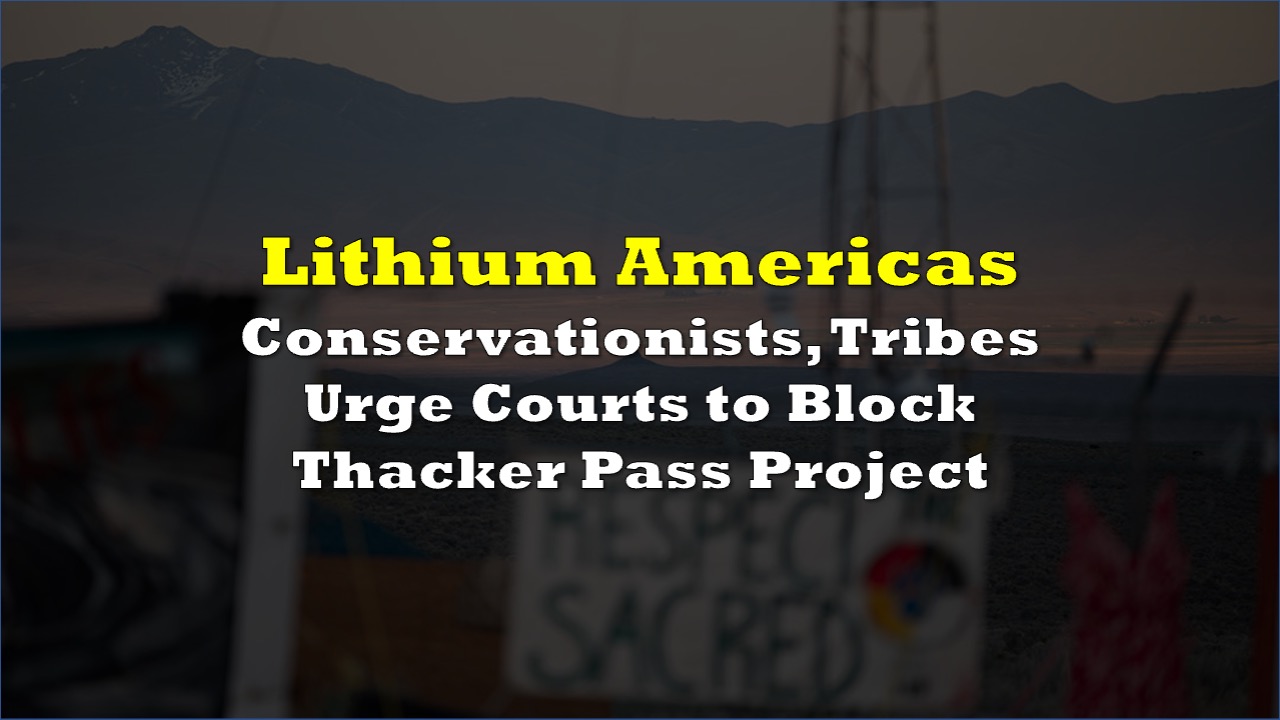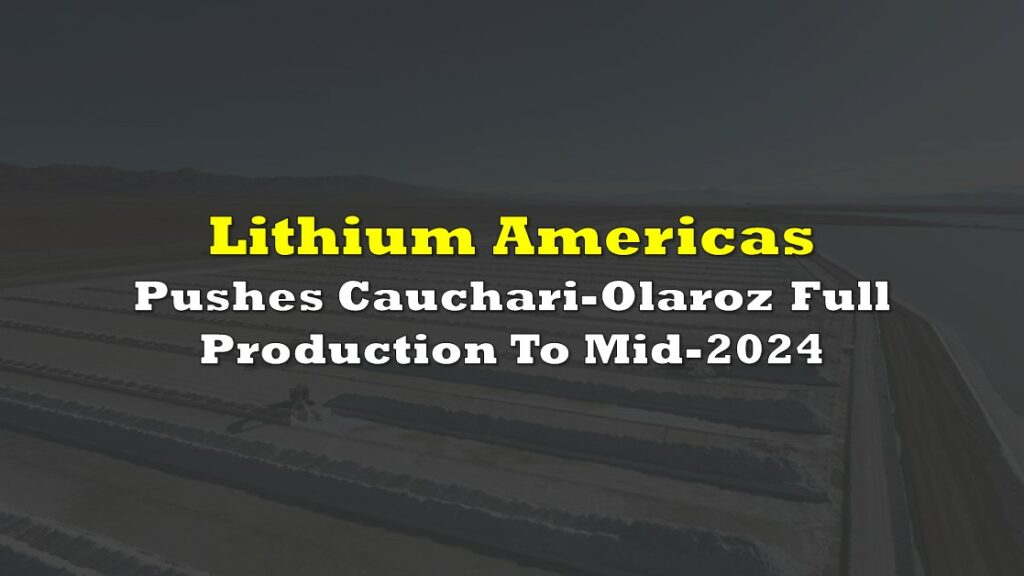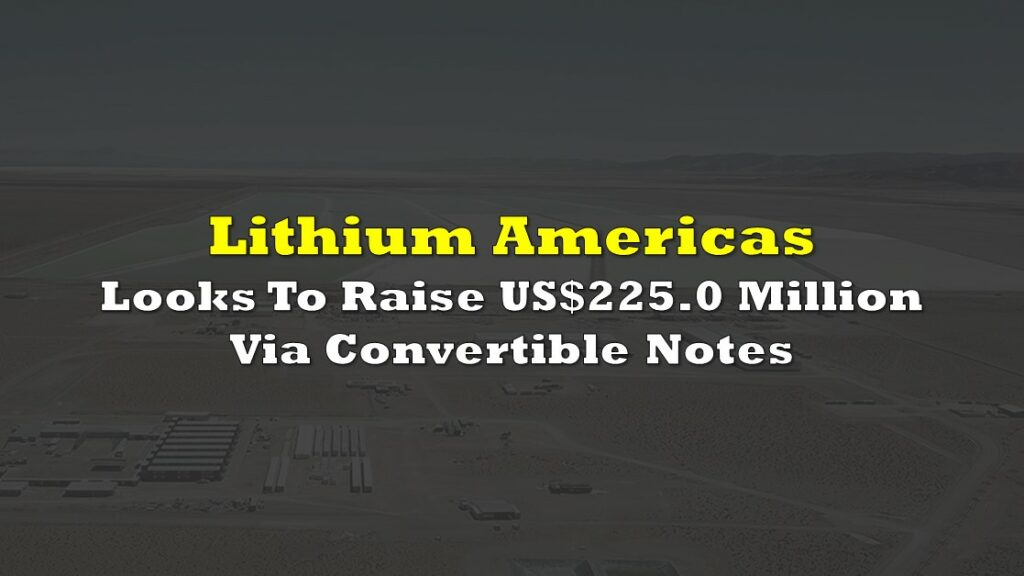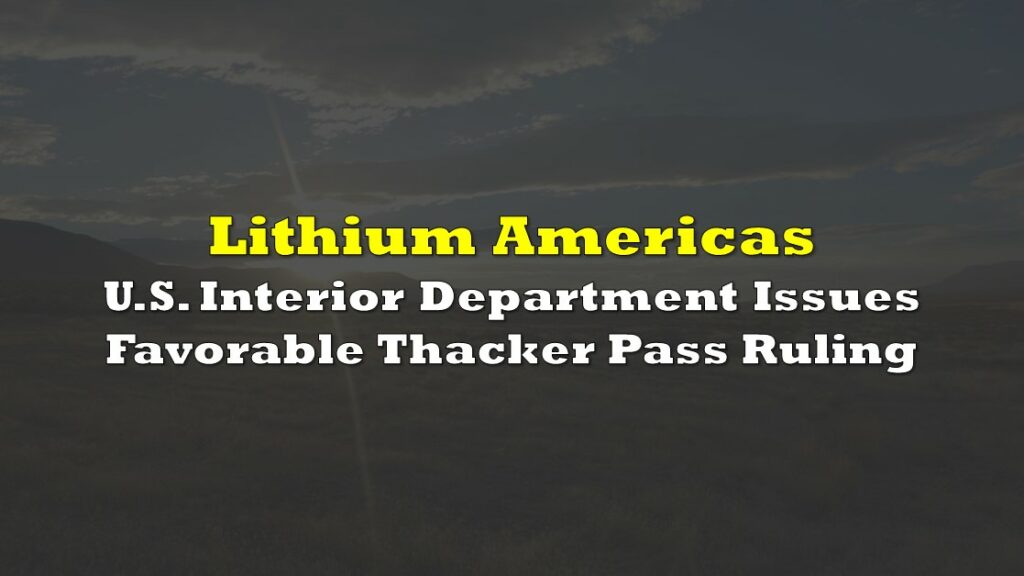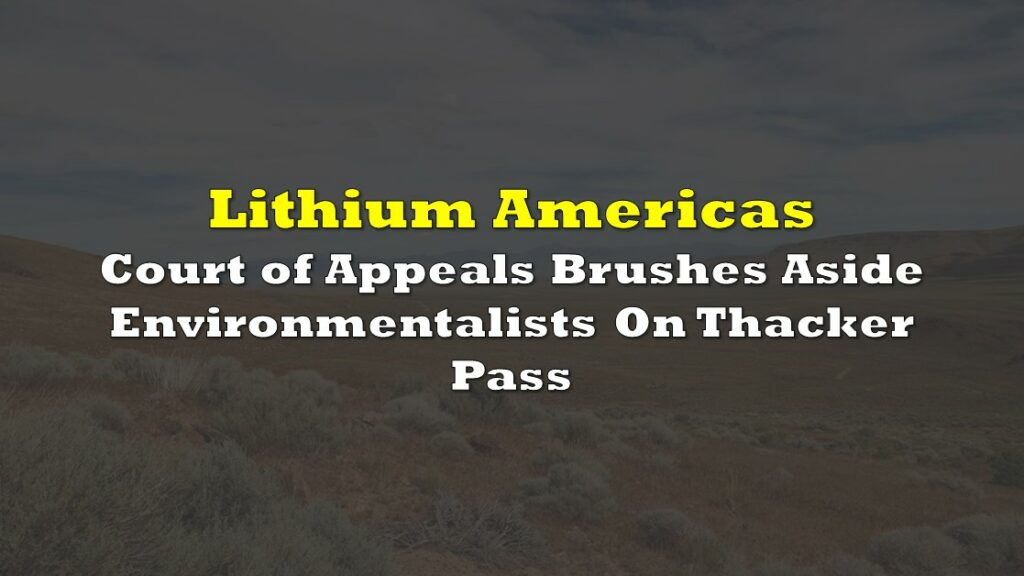On February 6, a United States district judge upheld the federal government’s decision to license the Thacker Pass lithium mine north of Winnemucca to Lithium Nevada Corp, a subsidiary of Lithium Americas (TSX: LAC). It gave a rare ruling where it directed the Bureau of Land Management (BLM) to reexamine one element of the environmental analysis while allowing LAC to proceed with the development of the lithium asset.
As expected, four conservation groups are now seeking a court order that would temporarily block Lithium Americas from any work at the Thacker Pass mine until they can appeal U.S. District Judge Miranda Du’s ruling to the 9th U.S. Circuit Court of Appeals.
“This mine should not be allowed to destroy public land unless and until the Ninth Circuit has determined whether it was legally approved,” said Talasi Brooks, a lawyer for the Western Watersheds Project in a statement. The groups filed the formal notice of appeal to the Francisco-based circuit court on Tuesday, along with the emergency request for an injunction in Reno, pending the appeal.
Judge Du has given BLM until the end of Wednesday to respond to the motion or to reach an agreement with the groups to pause construction that is slated to begin next week she rules on the request for an emergency injunction.
“Based on the urgency implied by environmental plaintiffs’ representation that Lithium Nevada intends to start construction on February 27 … the court sets an expedited briefing schedule,” Judge Du wrote in an order late Tuesday.
The judge’s February 6 ruling directs BLM “to determine whether Lithium Nevada possesses valid rights to the waste dump and mine tailings land it intends to use for the Project. But the Court declines to vacate the ROD pending BLM’s review of the mining plan of operations portion of the Project.” Notably, the court ruled against vacating the permit granted to Lithium Nevada, allowing the mine to proceed to construction.
“There’s no evidence that Lithium Nevada will be able to establish valid mining claims to lands it plans to bury in waste rock and tailings, but the damage will be done regardless,” Brooks argued in a statement.
If Judge Du were to grant an emergency injunction then @POTUS @ENERGY @SecGranholm @JigarShahDC are back to having the US as the "all talk" laughingstock of global #CleanEnergy. 10 years of uninhabited desert, extinct volcano permitting is enough. ENOUGH#Biden $LAC $GM #Lithium
— BradyOnLithium (@Brady1204933030) February 21, 2023
But Lithium Americas — and General Motors for that matter, as the automaker now holds 15.0 million shares of the lithium mine developer — said on Tuesday that they are confident that the court of appeals would uphold the project’s approval.
RELATED: Lithium Americas Closes On Initial $320 Million Investment From General Motors
“Since we began this project more than a decade ago, we have been committed to doing things right,” company spokesperson Tim Crowley said in an email to The Associated Press. “The recent U.S. District Court ruling definitively supported BLM’s consultation process, and we are confident the ruling will be upheld.”
The fresh lawsuit
Separately, a new lawsuit was filed by the Reno-Sparks Indian Colony, Burns Paiute Tribe, and Summit Lake Paiute Tribe in Federal District Court on Thursday evening. The suit has three major allegations:
- “First, the tribes claim that the Bureau of Land Management (BLM) withheld crucial information from the Nevada State Historic Preservation Office and lied about the extent of tribal consultation in order to secure legally-required concurrence about historic properties in Thacker Pass.”
- “Second, the tribes allege that Lithium Nevada, with BLM’s complicity, lied about terminating a set of older permits for mining-related activities in Thacker Pass. Further, the tribes say that the BLM has, without notifying tribes or the public, expanded the scope of previous permit authorizations dozens of times, allowing Lithium Nevada to conduct preliminary mine construction activities that are harming traditional cultural properties in Thacker Pass.”
- “Third, the lawsuit argues that the BLM lied about consulting with tribes before issuing their Record of Decision, and that the agency has continually refused to acknowledge both oral and written histories presented by the tribes about the sacredness and cultural significance of Thacker Pass.”
Overall, the new suit asserts that in granting Lithium Americas a permit, BLM violated the Federal Land Policy Management Act, the National Historic Preservation Act, and the National Environmental Policy Act, and is also guilty of Breach of Contract.
The tribes also claim that the initial case ruled by Judge Du on February 6 only considered events and information before January 15, 2021, when BLM issued the Record of Decision (ROD) or the main federal permit for the Thacker Pass lithium mine project.
“Tribal claims were curtailed by this limitation, which blocked key evidence from being heard — evidence that is integral to the new case,” the plaintiffs wrote in a statement.
The tribes behind the suit hold Thacker Pass, known as “Peehee Mu’huh” in the Paiute language, as a sacred and culturally significant site. Reno-Sparks Indian Colony and Summit Lake Paiute Tribe are also seeking to have Thacker Pass added to the National Register of Historic Places, the country’s official list of historic places worthy of preservation.
The White House has earlier said that Lithium Nevada’s planned lithium mine will play a critical role in stepping up efforts to produce raw materials for electric vehicle batteries domestically. The Thacker Pass property may have sufficient resources to produce 60,000 tonnes of battery-grade lithium carbonate per year for 46 years.
Spent some time this morning reading up on the Thacker Pass / $GM / $LAC transaction.
— The Deep Dive (@TheDeepDive_ca) February 5, 2023
The short of it, is it appears the US is at a cross roads in terms of development.
They can either approve the mine + push forward with progress.
Or halt it + kill investment in a huge way.
Lithium Americas last traded at $31.16 on the TSX.
Information for this briefing was found via AP News, Reno Gazette Journal, and the sources and companies mentioned. The author has no securities or affiliations related to the organizations discussed. Not a recommendation to buy or sell. Always do additional research and consult a professional before purchasing a security. The author holds no licenses.

